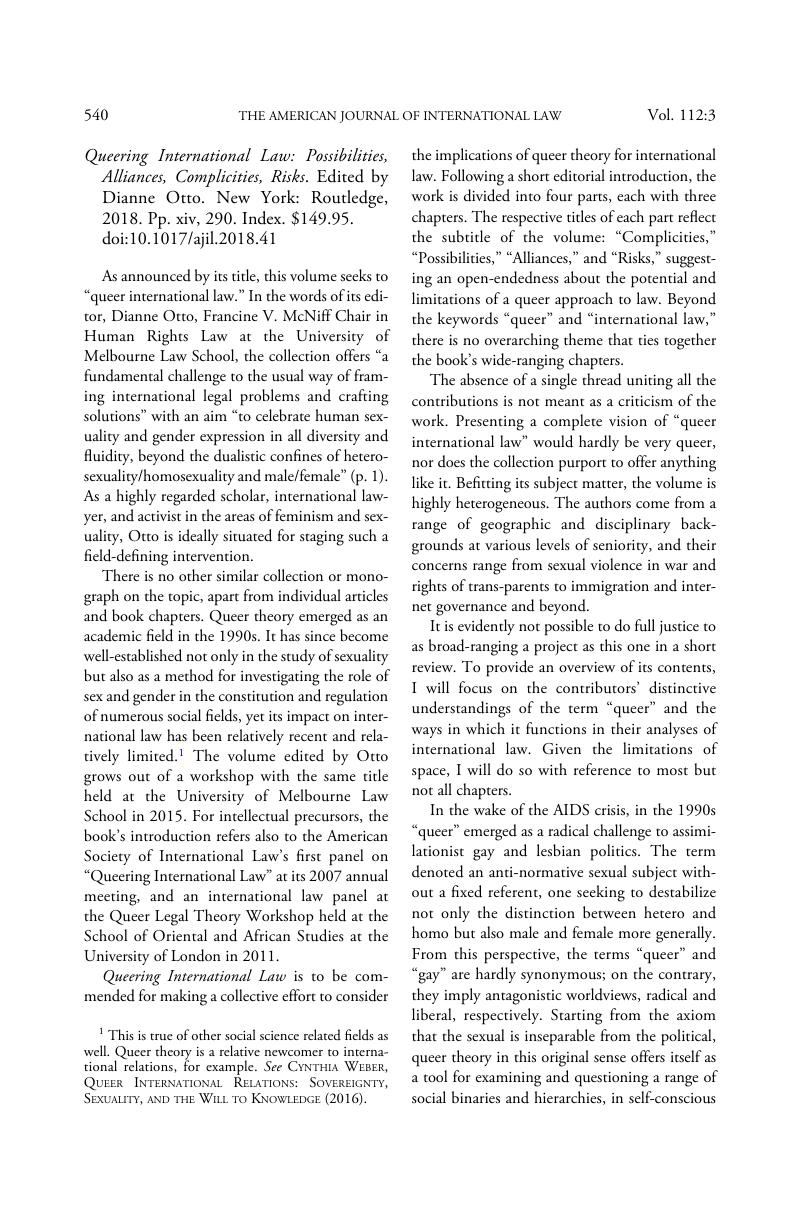No CrossRef data available.
Article contents
Queering International Law: Possibilities, Alliances, Complicities, Risks. Edited by Dianne Otto. New York: Routledge, 2018. Pp. xiv, 290. Index. $149.95.
Published online by Cambridge University Press: 29 August 2018
Abstract

- Type
- Book Reviews
- Information
- Copyright
- Copyright © 2018 by The American Society of International Law
References
1 This is true of other social science related fields as well. Queer theory is a relative newcomer to international relations, for example. See Cynthia Weber, Queer International Relations: Sovereignty, Sexuality, and the Will to Knowledge (2016).
2 I elaborate on this distinction in my analysis of China as a historically queer subject of international law. See Ruskola, Teemu, Raping Like a State, 57 UCLA L. Rev. 1477, 1480–82 (2010)Google Scholar.
3 Compare José Esteban Muñoz, Cruising Utopia: The Then and There of Queer Futurity (2009), with Martti Koskenniemi, From Apology to Utopia: The Structure of International Legal Argument (2005).
4 See, e.g., Judith Butler, Bodies That Matter: On the Discursive Limits of “Sex” (1993); Eve Kosofsky Sedgwick, Epistemology of the Closet (1990).
5 Here, works such as Mel Y. Chen, Animacies: Biopolitics, Racial Mattering, and Queer Affect (2012) might provide further avenues worth exploring.
6 See, e.g., Robert McRuer, Crip Theory: Cultural Signs of Queerness and Disability (2006).
7 Puar's new book will no doubt prove similarly useful for queer theorizing about international law. See Jasbir K. Puar, The Right to Maim: Debility, Capacity, Disability (2017).
8 A somewhat awkward translation of the French term agencement, “assemblage” in Deleuze's usage refers to the play of agency arising from relations of force that interact with each other. See generally Gilles Deleuze & Félix Guattari, A Thousand Plateaus: Capitalism and Schizophrenia (1987).


